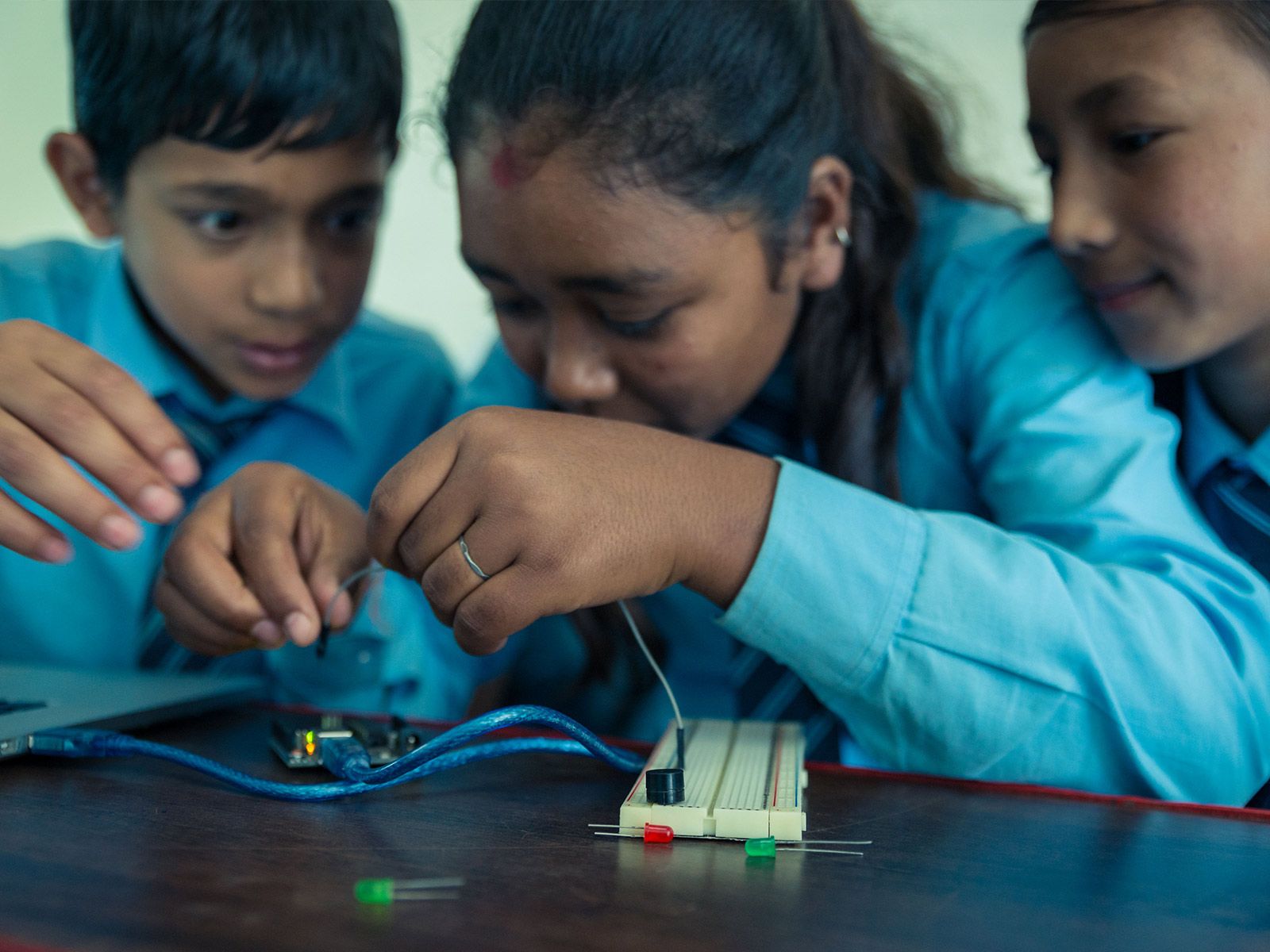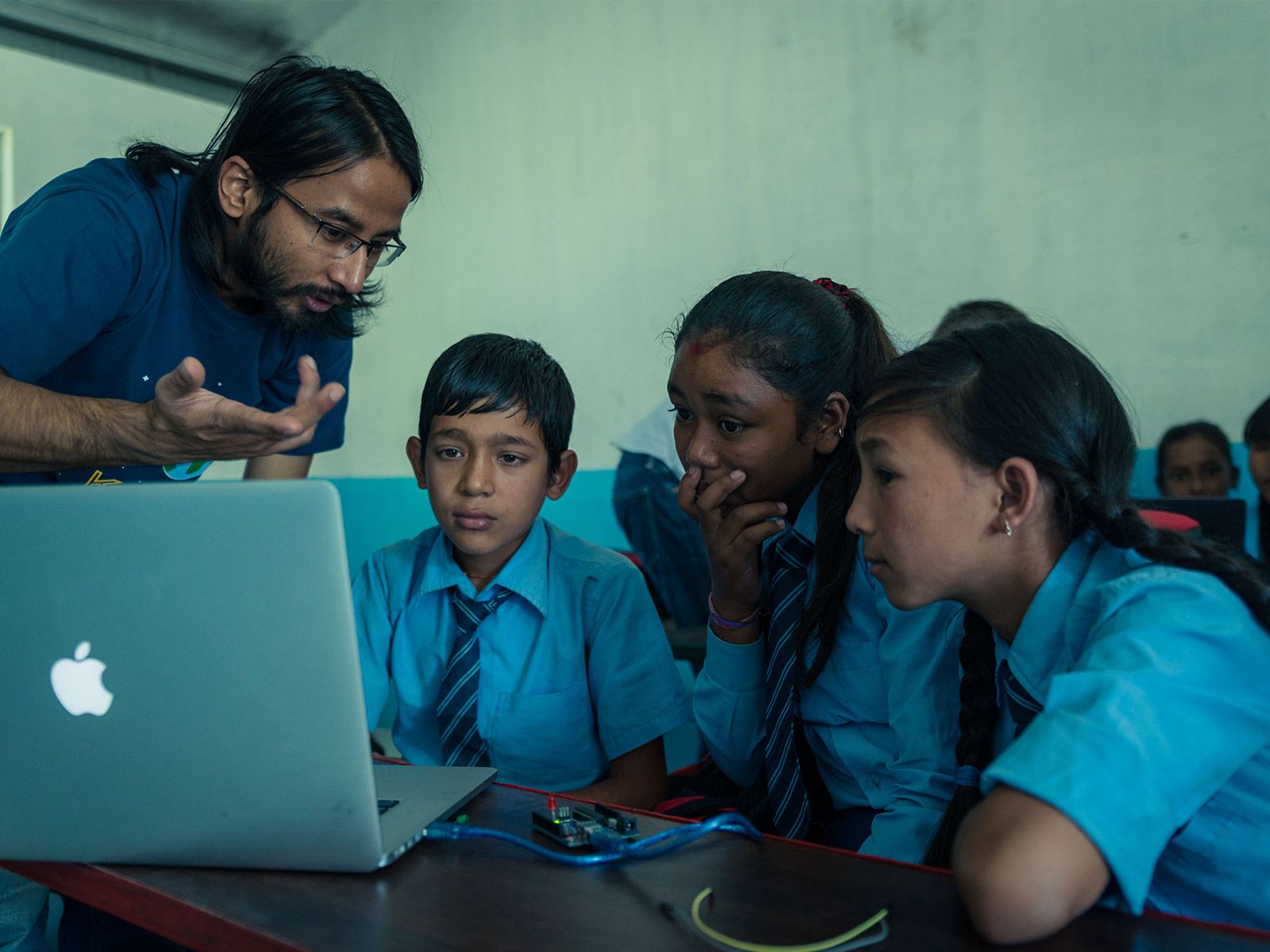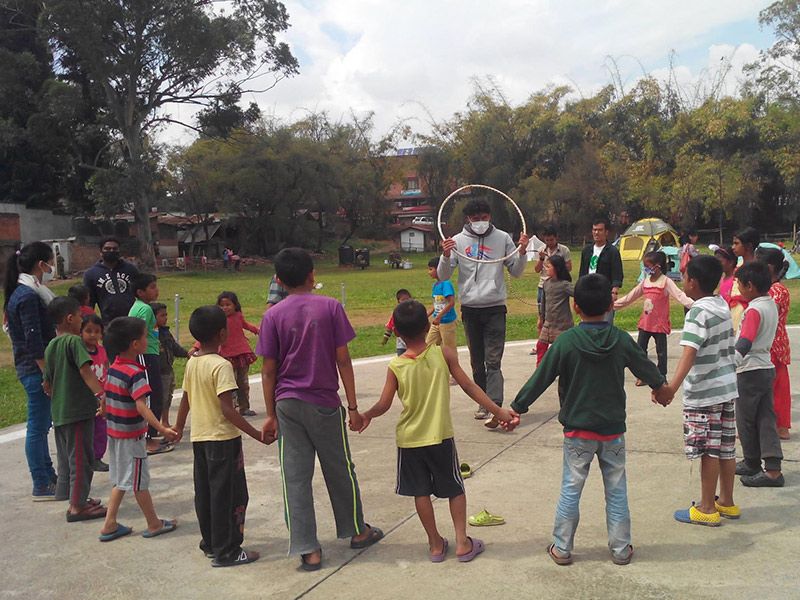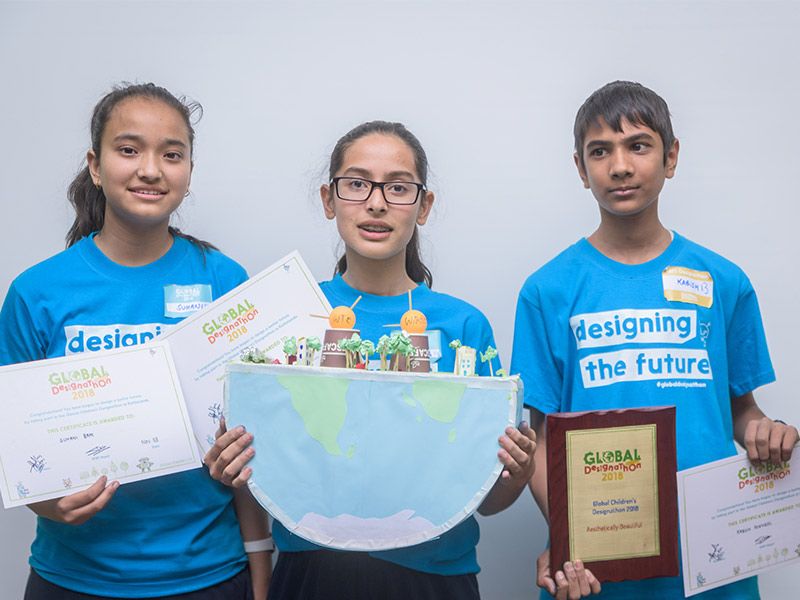What we do
We use design thinking and results-based management approaches to work under five broad areas (IDEaS) – Innovative and Inclusive Education, Digital Transformation, Education in Emergencies and Sustainability and Climate Adaptation.

Innovative and Inclusive Education
We work to ensure inclusive and equitable quality education through innovation. We believe that innovation in education is more than introducing new technology in learning, it’s about designing situated learning experiences that enable students to not only solve problems but express themselves.
Projects
PEBL, ESAF Nepal, COVID19 Emergency Response, Building up STEAM, Hasdai Kheldai
Digital Transformation
We enable Nepali people to use technology responsibly to learn, create and participate in the digital world, and help them become good digital citizens. We create contextual resources that help people adapt digital tools and content while also making sure of its responsible use.
Projects
SAReMC, Digital Citizenship Toolkit
Education in Emergencies
We support and strengthen educational institutions and systems in times of emergencies ensuring that people continue to have access to quality learning experiences during times of crisis. We focus on building a capable and resilient education system to reduce negative impacts of emergencies on student learning.
Projects
COVID-19 Emergency Response for Nepal (Education Support Program), PEBL
Sustainability and Climate Adaptation
We understand that for future generations to get access to the resources this planet has to offer requires the current generation to adapt to sustainable and environment friendly practices. We engage with local and international experts in contextualizing climate actions to fit the local narrative in Nepal.